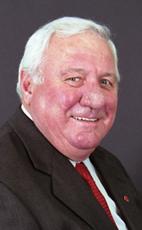Mr. Speaker, I will be dividing my time with the hon. member for York West.
It is an honour to rise on the prebudget consultation debate to look at what the government has accomplished to this point and where we may go in the future.
Looking into the past it might be relatively easy for someone like myself to say steady as she goes. The previous finance minister set up a system of two year rolling targets which resulted in balanced budgets. We are headed toward six consecutive balanced budgets for which I am sure the people of Canada are quite grateful. We have been able to make a substantive dent in the national debt and to certainly free up a great deal more revenue that can be used for worthwhile purposes.
Some changes have entered into the picture this last year that cannot be ignored. However they can be complemented in the budget that is to be put before us, possibly in February.
One is health care which Canadians consider to be the single most important social issue that we have to deal with. It is one of those wonderful elements that sets us apart from our cousins to the south. In the past it has proven to be an excellent program.
Physicians who deal internationally tell me that if we want to compare Canadian medicare with other countries all we have to do is to travel to every other country in the world. We would find with all of its weaknesses that medicare in Canada still holds its own at the top or close to the top of the heap. It is not that we cannot improve, but we must improve. We must meet the needs of Canadians in the future.
We must remember that when medicare came into existence people's expectations and the technology to treat people were very different from what they are today.The cost per citizen is a very different issue than it was in the 1960s. There are things like heart bypass operations now, which almost seem like getting a wisdom tooth extracted. After five days a patient is transferred to a rehab hospital and then is back on his or her feet. The vast majority of those surgeries are very effective.
That kind of medical procedure did not exist when medical care came into existence. We have to be cognizant of that. We get far better service than we did years ago. Our physicians know more and their practices are constantly improving. We are grateful for that but we have to find the resources to match the need. That is relatively new in the system, although it has been coming on over recent years.
The other element we are going to deal with for the first time is the commitment we made with respect to the Kyoto accord. It commits Canada to lowering greenhouse gas emissions to 6% below 1990 levels over the next 10 years.
It is interesting to observe that when it comes to health care and the Kyoto accord, the two of them have somehow come to fit together. The elements that Canada is challenged, in the view of this humble member, seem to have been opened up and positively exposed with the passage of the Kyoto accord. I will try to detail that as best I can.
I feel that when the new budget comes out, however we call it, whether we call it a health budget, a green budget, a Kyoto budget or whatever, a lot of the elements will be tied together. This should help to make a budget that is more efficient. It will strengthen Canada's financial position rather than weaken it.
I think of Kyoto and health, for instance, as that part of the health system that we consider preventive health rather than clinical treatment. According to the Ontario Medical Association there are about 1,800 to 2,000 premature deaths in Ontario every year because of dirty air and there is a huge escalation in the incidence of childhood asthma. In Alberta's oil patch, the information I have is that the incidence of respiratory ailments is three times higher than it is in the rest of the province of Alberta.
Surely those things should say something. They should make us conscious of the fact that when we think of the need for an improved health system, we should also think of the need for improved preventive measures. One of those preventive measures will be manifested in our setting on a journey of 1,000 miles, the first step of which was the endorsation of the Kyoto accord. Therefore it is a health issue.
Kyoto also is an agriculture issue. When we think of the potential to augment our fossil fuel supplies with biofuels that can be added to the existing fossil fuels and very much reduce emissions into the atmosphere as a result, Kyoto becomes an agriculture issue. It encourages markets for farmers who have really been suffering in the last few years because of the incredible agriculture subsidies in Europe and the United States. That is another plus. Perhaps we could call it an agriculture budget.
We could call it a transportation budget because one of the objectives is to reduce emissions.
When the budget comes down, I think a lot of these issues will converge. It will allow us to bring in a budget that will strengthen all the sectors of the economy.

